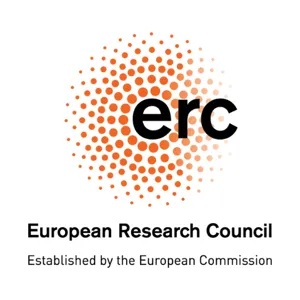The impact of this project has the potential to be significant not only for the study of Latin but also for historical linguistics in general. The research will offer new insights into how words change their meanings across different types of texts and historical periods. It will also help us understand how different words within the same field of meaning evolve and how these changes can be tracked over time.
Dr Barbara McGillivray, Lecturer in Digital Humanities and Cultural Computation
07 April 2025
King's project awarded €2M UKRI funding to study the evolution of language
A new project led by Dr Barbara McGillivray will receive funding under the UKRI Horizon Europe guarantee.

The Computational Corpus Annotation for Quantitative Analysis of Latin Lexical Semantics (COALA) project has been selected by the European Research Council and will receive a €2M grant from UKRI under the Horizon Europe guarantee.
The project, led by Dr Barbara McGillivray, Lecturer in Digital Humanities and Cultural Computation in the Department of Digital Humanities at King’s and group lead of the Computational Humanities Research group, aims to revolutionise how we study word meanings in historical languages.
By developing advanced computational methods, the project will automate the process of annotating Latin texts with meaning information, enabling large-scale analysis of how word meanings have evolved over 2000 years.
COALA will establish new methods for analysing ancient languages by providing large-scale quantitative data on semantics in Latin, a language with one of the longest recorded histories and an exceptionally extensive collection of digitised texts.
‘This project will ultimately create a foundation for future research on the semantics of historical languages, enhancing our understanding of language evolution and its cultural context. We aim to make a lasting impact on historical linguistics, computational semantics, and digital humanities,’ says Dr McGillivray.
The COALA project will make a major contribution to the Department’s growing expertise in computational humanities and heritage. It will transform how we study language change over time, giving us new insights into how word meanings evolve, not just in Latin but in other historical languages. Through its innovative use of computational methods and tools it promises to push the boundaries of what can be done both in historical linguistics and digital humanities more broadly.
Dr Mark Hedges, Head of Department, Digital Humanities
Open-access resources produced by the project team will enable researchers across disciplines to build on the work led by King’s.
Horizon Europe is the world’s largest research and Innovation programme, with a budget of over £82 billion (€95.5 billion) and runs until 2027.
The ERC is the premier European funding organisation for excellent frontier research. It funds creative researchers of any nationality and age, to run projects based across Europe.
UK Research and Innovation (UKRI) is a non-departmental public body sponsored by the Department for Science, Innovation and Technology (DSIT).



